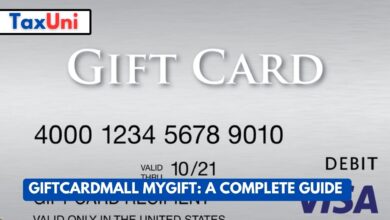Best Credit Unions
Credit unions provide lower fees and better rates than banks. They also offer a range of financial services, including checking and savings accounts. However, they tend to have fewer branches and ATMs than banks.

In 2025, credit unions are a great option for those looking to save and earn higher interest rates on their deposits. These not-for-profit entities offer a variety of services, including free checking accounts, competitive APYs, and more personalized banking than big banks often provide. Credit unions are open to a larger group of people than traditional banks, and many have membership requirements based on geography, occupation, employer, or other affiliation.
Credit unions are not-for-profit organizations that offer lower fees and higher annual percentage yields (APYs) than banks. They also provide personalized customer service and are often more flexible in their membership requirements. For example, many credit unions allow you to join by making a small donation to a community cause. But they generally have fewer branches and ATMs than large national and regional banks, so that may be an issue if you often need to do in-person banking.
Are Credit Unions Safer than Banks?
There’s a popular myth floating around that credit unions aren’t as safe as banks. It may have something to do with the fact that it’s a lot easier to spread fake news in this financial crisis, but the truth is that credit unions are just as safe as banks and sometimes even safer. Unlike for-profit banks that serve their shareholders, credit unions are non-profit organizations that exist to help their members. Because of this, they typically offer better rates on savings and loans and don’t have as many fees.
Additionally, federally insured credit unions like those in this article are backed by the government, so your money is still protected if the institution fails. See the NCUA website’s Share Insurance Estimator for more information on how this works. Another benefit of credit unions is that they often have a stronger presence in their local communities. This could mean giving scholarships to kids headed to college, sponsoring community events, and more. They also tend to be more willing to work with people with lower credit scores, which can make it harder for some people to find a loan at a bank.

Best Credit Unions in the U.S.
The most popular credit unions in the United States offer a variety of products and services, including online banking, mobile apps, and a wide range of deposit accounts. Some of them have competitive interest rates on their checking and savings accounts and no monthly maintenance fees. Others, such as Boeing Employees Credit Union (BECU), have a wide range of accounts and high-yield savings accounts with no minimum balance requirements. Boeing Employees’ Credit Union offers a free rewards checking account with competitive interest and no fees or minimum deposit. Plus, members have access to a shared network of ATMs through CO-OP.
Other notables include First Tech Federal Credit Union, which has an open door to all residents of the state and offers an excellent choice of checking and savings accounts, including one of the best high-yield options available. It also offers mortgage, auto, and personal loans and investments services. Its mobile app is highly rated. And it’s NCUA-insured, just like the FDIC. That’s a big perk that makes this institution a top pick in 2023.
Blue Federal Credit Union is a great example of a good credit union that offers a variety of accounts, including high-yield checking and savings accounts and low-cost loans. The credit union also participates in the Co-Op Shared Branch network, which means you can access your money at 5,500 shared credit union branches and 30,000 fee-free ATMs. It’s important to find the best credit union for your needs, so take the time to understand what you hope to get out of an account before signing up. Also, check to see whether a credit union has any monthly fees that might slow down your financial growth potential.
To join a credit union, you must meet certain criteria. These criteria can include where you live or work, your employer or a specific community, or affiliation with certain groups like the military. Many of them require a membership fee to join, although some have no fee. Some credit unions offer higher interest rates on checking accounts than banks, but not all do so.





